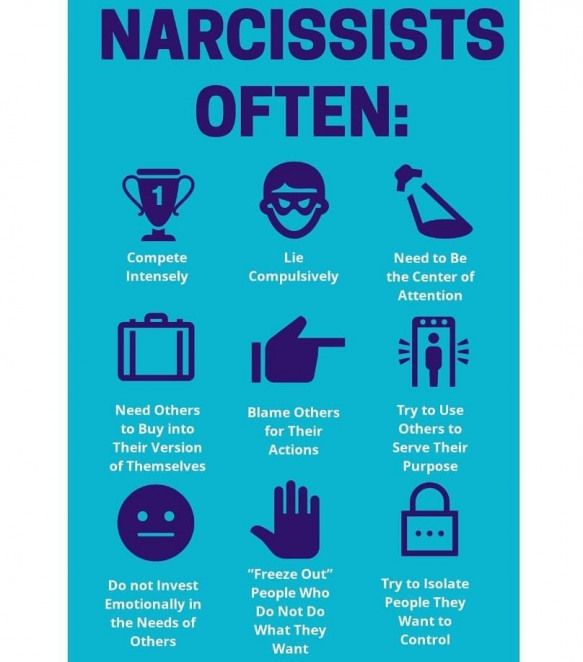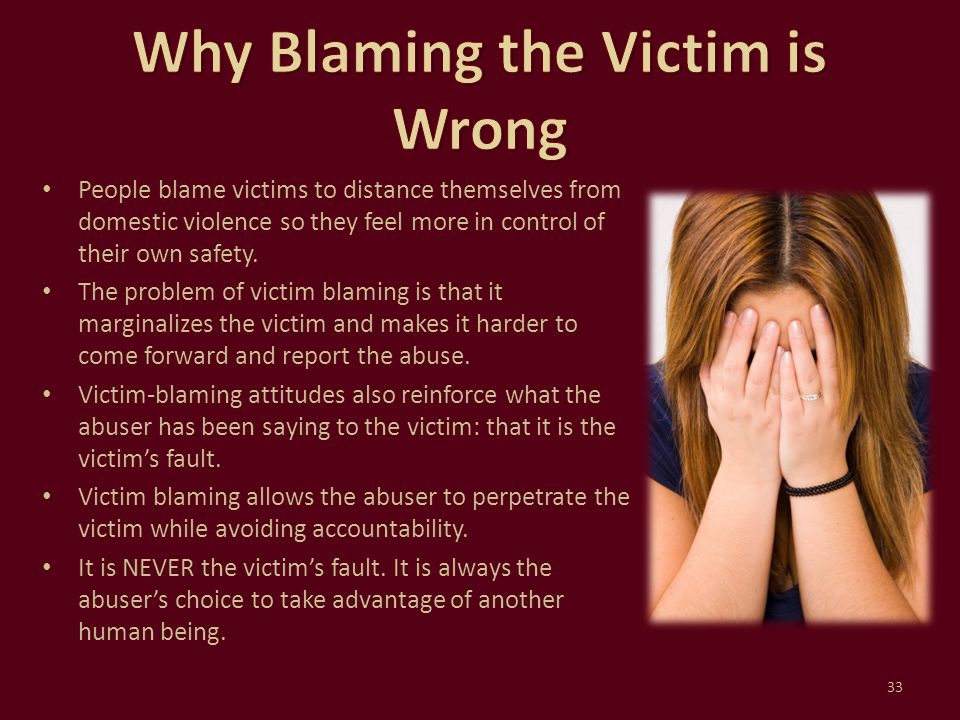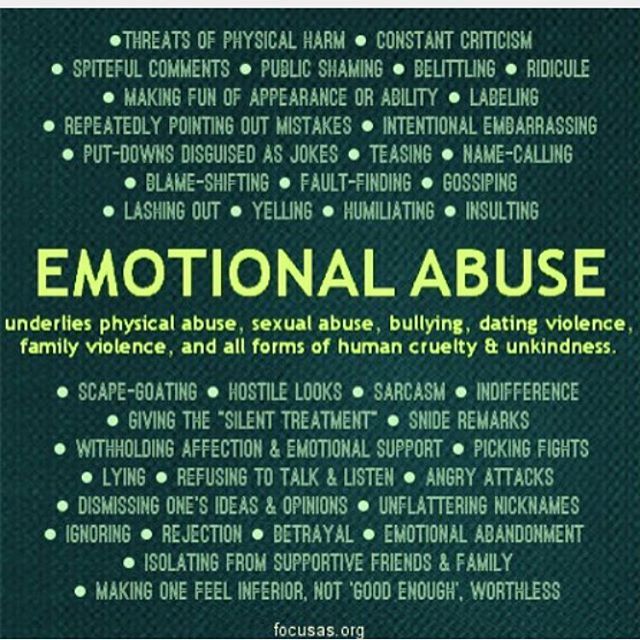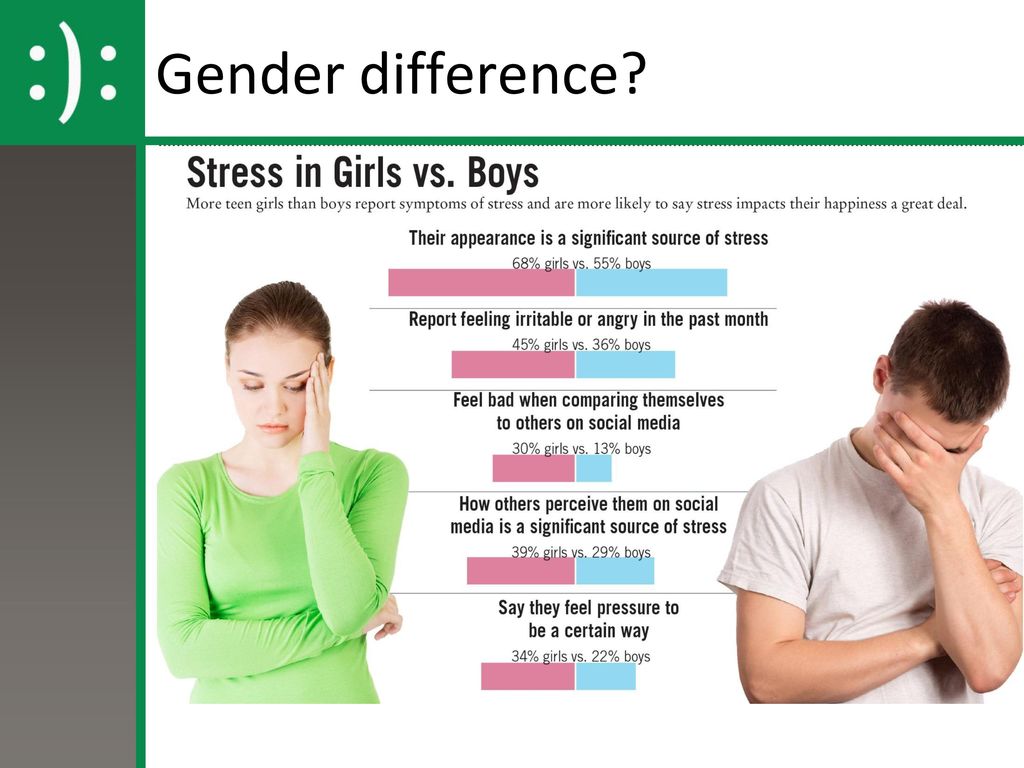Narcissist blame shifting
Blame Shifting Phrases: Examples of Narcissist Blame Shifting
The narcissist cannot take blame for things that have happened because that would require them to view themselves as individuals capable of making mistakes. Their beliefs of superiority and grandiosity would not support the narrative that they could be flawed in some way. Even when they are to blame for something, and the evidence is staring them in the face, they are incapable of accepting blame because this leads to feelings of shame and then narcissistic injury. When the narcissist begins to think that someone will blame them for an action, they go into self-preservation mode and will deflect all blame from themselves and onto someone else. This is where the blame-shifting happens. Today, I will provide examples of narcissist blame shifting with some common blame-shifting phrases. When you can be aware of this tactic used by the narcissist to make the problem about you, you can learn how to not get drawn into their game of manipulation and control.
Because the narcissist cannot accept blame, they will consistently make themselves the victim. When they can be viewed as the victim then the negative focus is off them, and onto the person who allegedly wronged them. The blame shifting is where they deflect the blame onto someone else by making this person the problem.
Blame shifting is similar to gaslighting, so many of the blame shifting phrases could also be considered gaslighting. Both gaslighting and blame shifting are forms of emotional abuse where the narcissist maintains control by using their abusive tactics. By blame-shifting, the narcissist doesn’t have to take responsibility for their actions.
Blame shifting results in victim blaming. This happens most often with a narcissist when you confront them on a lie or try to set boundaries. When the narcissist starts to feel like they are losing control and their image of superiority and grandiosity is at risk, they will blame shift. The issue is no longer about them, but you. When you experience blame shifting in a conversation or argument, you oftentimes lose focus on what the original issue was because the narcissist has done so much switching of issues that you become confused. This is exactly where the narcissist wants you to be. When you are confused, you don’t know what is real or not anymore, and you are more likely to back down.
The issue is no longer about them, but you. When you experience blame shifting in a conversation or argument, you oftentimes lose focus on what the original issue was because the narcissist has done so much switching of issues that you become confused. This is exactly where the narcissist wants you to be. When you are confused, you don’t know what is real or not anymore, and you are more likely to back down.
Here are some examples of blame-shifting phrases so you can be on the lookout for this tactic from the narcissist:
“If you wouldn’t have said that then I wouldn’t have called you names!”
“If you weren’t always nagging me then I wouldn’t have cheated on you!”
“You always do that!”
“You didn’t ask me if I was meeting up with my ex, you asked if I was talking to my ex”
“You never loved me.”
“It is all your fault.”
“You are always screwing things up.”
“If you didn’t always make me angry then I wouldn’t hit you. ”
”
“If you weren’t always asking me questions then I wouldn’t have been distracted and gotten the speeding ticket.”
What you notice with all these examples of blame shifting is it is all about *you* and never about the narcissist. The narcissist behaved in a certain way because of what *you* did. They take no responsibility for their actions and it is all put on you. As an intelligent, caring individual you consider what is said and think about how what you did may have caused the problems. However, it is not about you. While the narcissist may not want to take responsibility for their behaviors, they are, in fact, able to respond in a different way.
Blame shifting shuts down all communication and this can be detrimental to the relationship. When the narcissist blame shifts in the relationship, their partner starts to believe they are the problem. The partner thinks they have to work harder to make the relationship work because they believe that negative things are happening in the relationship because of them.
If the narcissist believes that they have done nothing wrong, and you are 100% the cause of the problem, they don’t think they need to work on anything. As the partner of a narcissist, you are seen as the reason for all of the problems that exist in the relationship and this can be exhausting. There is nothing more that you can do to change the narcissist’s mind. You will always be wrong, no matter what. As long as you can continue to be the person in the wrong, then the narcissist can free themselves of any responsibility and maintain their supply and feelings of grandiosity and superiority.
If you think blame shifting might be happening in your relationship, speak to a friend or professional to try to unravel what is real and what is not. The narcissist will do everything they can to keep you in a place where you believe you are wrong – don’t give them that power and continued control over you!
At Mindset Therapy we provide mental health services in Texas and Washington from trained professionals, via telepsychology, which allows you to attend the appointment from the location most convenient for you. Visit Mindset Therapy at https://www.mindsettherapyonline.com/ to learn more about the services offered and make an appointment. Also visit our YouTube page, Mindset Therapy, PLLC, for the Mental Health Minute series that provides quick pieces of information for common mental health issues.
Visit Mindset Therapy at https://www.mindsettherapyonline.com/ to learn more about the services offered and make an appointment. Also visit our YouTube page, Mindset Therapy, PLLC, for the Mental Health Minute series that provides quick pieces of information for common mental health issues.
Narcissists, Controllers, and the Art of Blame-Shifting
Source: Photograph by Damir Spanic. Copyright free. Unsplash
The term gaslighting has filtered into the public consciousness as part of our continuing fascination with all things pertaining to narcissism. And while gaslighting is certainly a strategy people who need to control employ—whether they be parents or lovers or spouses or friends or employers—there’s another we should be talking about just as much: Blame-shifting. The latter is, in some ways, more subtle than gaslighting, and way harder to see. Let’s take a look at the two and do what English teachers call a compare-and-contrast exercise, shall we? (Yes, I was one once. )
)
Gaslighting versus blame-shifting
To be clear, both tactics are verbally abusive and depend on an imbalance of power in the relationship between the person using them and the person on the receiving end; the powerless intended target is usually very invested in the relationship, most likely loves or cares deeply about the abuser, and is often dependent on him or her. The person doing the gaslighting or blame-shifting is actually more interested in feeling powerful or in control (and the buzz that comes with it) than they are emotionally connected to their target.
What is gaslighting precisely? It takes its name from a play and then a 1944 movie called Gaslight starring Charles Boyer and Ingrid Bergman. In it, Boyer manipulates Bergman and distracts her from his criminality by trying to convince her that she is going insane. And that’s what gaslighters do: They make the target believe that his or her grip on reality is tenuous at best and non-existent at worst. The most common tactics are insisting that something that happened didn’t, dismissing a claim by saying it was simply imagined, or telling the person flat out that she or he is losing it or crazy. Gaslighters exploit their target’s fears, insecurities, vulnerabilities, and neediness to their own ends.
The most common tactics are insisting that something that happened didn’t, dismissing a claim by saying it was simply imagined, or telling the person flat out that she or he is losing it or crazy. Gaslighters exploit their target’s fears, insecurities, vulnerabilities, and neediness to their own ends.
While it takes some concerted effort to gaslight another adult—even a needy or insecure one—gaslighting a child is remarkably easy because of the enormous power and authority a parent has by definition. What child can stand up to the words “You’re imagining it because it never happened” when uttered by her or his mother or father, each of whom is the ruler of the very small universe in which the child lives?
Blame-shifting also exploits whatever disparity in power exists in the relationship and, again, is remarkably easy in a parent-child relationship. But, between adults, it has certain subtleties that gaslighting does not and, as a net, it catches more fish. This behavior is always about power and the sad truth is that the victim tends to be the one who loves, needs, and depends on her or his abuser in ways that are significantly different from the motivations of the person shifting blame.
How blame-shifting works
This particular form of manipulation depends on the abuser really knowing your weaknesses and tendencies; among them might be your steadfast avoidance of conflict or your proclivity to play the peacemaker; your tendency to backtrack on your positions; your desire to please; your own insecurities and doubts about yourself; and your tendency to question the validity of your thoughts and feelings. Most of the people caught in this web grew up in households where their emotional needs weren’t met and were unloved, unsupported, or downright picked on in their families of origin. This is also true of the abuser but he or she has learned to cope differently.
Mind you, most of the time the abuser doesn’t look you in the face and say “This is all your fault because…” although he or she might from time-to-time; it’s usually stealthier than that. Let’s say you complained about his or her behavior and the argument escalated until suddenly the abuser says, “I wouldn’t have acted that way if you weren’t always nagging me” or “If you didn’t always start in when I am dead tired from work, I wouldn’t lose my temper” or “If you weren’t always focused on you and your needs, we wouldn’t be fighting. ” The chances are good that the guilt-tripping works because you want this relationship to thrive and suddenly you feel awful and you hear yourself apologize. Since your goal is to have things work out between you, you don’t even see you’ve been played.
” The chances are good that the guilt-tripping works because you want this relationship to thrive and suddenly you feel awful and you hear yourself apologize. Since your goal is to have things work out between you, you don’t even see you’ve been played.
I am sorry to say that this actually happened to me. I did notice early in my relationship to a man who turned out to be highly narcissistic that he had an odd way of deflecting the conversation when I discovered he hadn’t been entirely truthful about something I asked him about. He would always say, “If you had asked the right question, I would have given you the answer.” These were white lies and omissions and I wrongly attributed his way of dealing to his profession as a litigator and his poor communication with his former wife. I could not have been more wrong, and, yes, eventually, it devolved into blame-shifting. The only good news is that I didn’t fall for it.
Why narcissists and controllers blame-shift
The obvious answer is that it permits them to dodge responsibility for their words and actions; what’s more convenient than having a ready fall guy or a scapegoat? Plus, being right all the time is a dandy confirmation for the narcissist, reinforcing how strong and superior he or she is, despite the deep shame that sits at the core of the self like a poisoned pit. An allied tactic is what Craig Malkin in his book Rethinking Narcissism calls “playing emotional hot potato,” which is another way of looking at projection: The narcissist ascribes what he or she is feeling to the target. That too undermines the target’s sense of her own perceptions; even though she can see that he is red in the face, his jaw muscles working, and his arms closely held against his chest, he is telling her that it’s her anger that is wrecking the relationship. And she is apt to believe it.
An allied tactic is what Craig Malkin in his book Rethinking Narcissism calls “playing emotional hot potato,” which is another way of looking at projection: The narcissist ascribes what he or she is feeling to the target. That too undermines the target’s sense of her own perceptions; even though she can see that he is red in the face, his jaw muscles working, and his arms closely held against his chest, he is telling her that it’s her anger that is wrecking the relationship. And she is apt to believe it.
Through interviews for my next book as well as those conducted for Daughter Detox: Recovering from an Unloving Mother and Reclaiming Your Life, I have come to see that blame-shifting is also motivated by the need to strip the target of a sense of agency; what’s likely to happen is that, under attack, the target will resort to old default positions such as apologizing to or trying to placate the abuser. Inevitably, she’ll revert to another old learned behavior which is self-blame. That is, of course, what the narcissist or controller wants.
That is, of course, what the narcissist or controller wants.
Once you’ve identified blame-shifting, you’ll see that it’s a persistent pattern of behavior. Take heed.
Copyright© 2020 by Peg Streep
Facebook image: fizkes/Shutterstock
90,000 manipulator, narcissist or rescuer: HoldYou psychologists. A man is a manipulator, a narcissist or a rescuer: HoldYou psychologists.Authorization
New user Already registered
Forgot your password?
Contact
We will call you back as soon as possible!
Forgot your password?
Your new password must be different from the previous one
Create a new password
Your new password must be different from the previous one
Registration
New user Already registered
I confirm that I am over 18 years old, I have read the terms of service and privacy policy
Ilona Yakovleva
Family psychologist, gestalt therapist, sexologist
Experience: 8 years
Approaches: gestalt therapy, family systems therapy, art therapy.
Problems: depression, difficulties in relationships with partner, parents, children, self-esteem, problems with childbearing and family creation, divorce and loss, problems in the intimate part of relationships.
Natalia Zdorovtsova
Psychologist, family psychologist, sexologist
Experience: 10 years.
Approaches: psychodynamic (psychoanalytically oriented) psychotherapy.
Problems: individual and interpersonal difficulties (loneliness, repetitive scenarios, frequent conflicts, loss of trust, betrayal, dissatisfaction in the sexual sphere, etc.).
Ivan Gurtovoy
Psychotherapist, family psychologist
Experience: 11 years
Approaches: CBT, art therapy, symbol drama and a multimodal approach.
Problems: violence and pressure, negative and obsessive thoughts, PA, loss of a loved one, PTSD, eating disorders, anxiety and depression, apathy, guilt, relationship problems.
Angela Dolzhenko.
Psychologist, art therapist, body therapist
Experience: 23 years.
Approaches: art therapy, body-oriented therapy, work with metaphorical associative maps.
Problems: self-doubt, fears, anxiety, conflicts, search for a life's work, crises in family relationships, support of the process and consequences of divorce.
Ekaterina Simoroz
Psychologist, gestalt therapist, specialist in child-parent relationships.
Experience: 4 years.
Approaches: gestalt therapy, art techniques, mind maps, emotional education therapy.
Issues: emotional dependence, phobias, obsessive thoughts, chronic fatigue, procrastination, lack of meaning in life, emotional instability, identity issues.
Lilia Malashko
Psychologist-sexologist, family psychologist
Experience: 15 years.
Approaches: psychoanalysis, CBT, emotionally focused and emotionally imaginative therapy.
Problems: low self-esteem, couple relationships, dissatisfaction with life, sexual issues, stress, anxiety, parent-child relationships.
Yulia Reutenko
Family psychologist
Experience: 3 years.
Approaches: regressive therapy, systemic family psychotherapy using transgenerational and systemic approaches.
Problems: childhood traumas of adults, codependent relationships, self-devaluation, negative relationships with parents.
Alexey Vydysh
Family and corporate psychologist, mediator, supervisor, trainer, facilitator
Experience: 10 years.
Approaches: client-centered approach, CPT, existential analysis, systems approach, psychodrama.
Problems: personal growth and self-realization, professional activity, negotiation and conflicts, family relations, existential crises.
Margarita Zaichenko
Psychologist - psychotherapist, family and crisis psychologist
Experience: 14 years.
Approaches: Positive Psychotherapy, CBT, Emotional Image Therapy, Jungian Analysis, Gestalt Therapy, Psychoanalytic Therapy.
Problems: setting and realization of goals, fears, panic attacks, feelings of anxiety, conflicts, dissatisfaction with the quality and brightness of life.
Yulia Petrunyak
CBT consultant, sexology consultant
Experience: 3 years.
Approaches: CBT, NLP, art therapy, psychodrama.
Problems: relationship problems, abuse, divorce, loneliness, emotional dependence, betrayal, jealousy, burnout, self-esteem and self-realization, guilt and shame, fears, crises.
Olga Basista
Psychologist-sexologist, gestalt therapist
Experience : 9 years.
Approaches: gestalt therapy, positive psychotherapy, sexology.
Problems: sexuality, psychological or emotional dependence, anger, resentment, loneliness, shame of yourself and your feelings, self-esteem, anxiety, fears, panic attacks, problems in relationships, search for motivation.
Elena Dulova
Psychologist, family psychologist
Experience: 15 years.
Approaches: CBT, gestalt therapy, art therapy.
Problems: emotional instability, child-parent relationships, crises, losses, anxiety, fears, relationships in the family, in a couple, fatherhood, conflicts with others, internal conflicts.
Valentina Melkovskaya
Practicing psychologist, family counselor, gestalt therapist
Experience: 8 years.
Approaches: gestalt therapy, art therapy, family systems therapy.
Problems: low self-esteem, childhood mental trauma, emotionally dependent relationships, separation from parents, emotional burnout, depression, loneliness, stressful conditions, fear of death.
Natalia Tikhonova
Psychologist, family psychologist
Experience: 11 years.
Sets: family therapy, psychoanalysis, transactional analysis.
Problems: personality problems, burnout, depression, chronic fatigue, couple relationships, divorce, problems with success, motivation, eating disorders and more.
Olga Morozova.
Practicing psychologist
Experience: 10 years
Approaches: analytical psychology, art therapy, transactional analysis, body orientation therapy.
Issues: Crises, PTSD, gender-based violence (including domestic violence). I will be useful in working with anxiety, depression, burnout and self-esteem.
Olga Pribylskaya
Psychologist-consultant
Experience: 7 years.
Approaches: catathym-immaginative psychotherapy (symboldrama) and art therapy.
Problems: Difficulties in couples, family, self-discovery, self-esteem issues, loss, fears and phobias. Formation of life plans, career and goal setting.
Irina Filenko
Child, adolescent, family psychologist
Experience: 9 years.
Approaches: family therapy, art therapy, methods and techniques based on the strengths of the client.
Problems: relationship with a child, conflict situations in the family, adolescent crisis, alienation and aggression of adolescents, resource for fatherhood, gender characteristics of growth.
Roksoliana Vovk
CPT - consultant, gestalt consultant
Experience: 5 years.
Approaches: cognitive behavioral and gestalt therapy.
Problems: anxiety, depression, panic states, uncertainty, fear of interaction with the world, difficulties in relationships with loved ones, traumatic experience, difficulty in making a decision, self-doubt.
Irina Pikushchenko
Systemic family therapist
Experience: 15 years.
Approaches: family therapy, gestalt approach, constellation.
Problems: family and relationships within it, intrapersonal conflicts and problems in communication with the world, choosing a profession and finding one's own path, relations between a man and a woman.
Anna Bulatova
Psychologist, Gestalt therapist
Experience: 10 years.
Approaches: gestalt therapy, transactional analysis, MAC, art therapy, logotherapy.
Problems: conflicts in relationships, self-esteem, crises, childhood traumas, age-related crises, separation, self-doubt, adaptation to life in another country.
Maria Kisilevich
CBT consultant, coach, child psychologist
Experience: 15 years.
Approaches: CBT, art therapy, child psychology.
Problems: Problems in relationships with children, issues of upbringing and development of children, the child's adaptation period (kindergarten, school), anxiety, fears, negative beliefs, panic attacks, enuresis, anger.
Lyudmila Dmitrenko
Psychosomatologist, family psychologist, counseling psychologist.
Experience: 5 years.
Approaches: personal counseling, transactional analysis, psychosomatics, cognitive approach.
Problems: family conflicts, depression, anxiety, negative emotions, low self-esteem, abusive relationships, interaction with the external and internal world.
Olga Podvalnaya
Certified psychologist, sleep expert
Experience: 10 years.
Sets: client-centered psychotherapy, cognitive-behavioral psychotherapy.
Problems: sleep problems, domestic and abusive relationships, relationship problems, anxiety, apathy, well versed in the unique context that LGBTQ+ people face.
Svetlana Nazirova
Psychologist, gestalt consultant
Experience: 3 years.
Approaches: gestalt therapy, coaching, art therapy, MAC.
Issues: relationship crises (infidelity, anxiety, vulnerability, jealousy, control, panic attacks), problems of female self-manifestation, search for a resource, problems of self-esteem and emotions.
Daria Zozulya
Systemic family psychologist, child/adolescent psychologist
Experience: 8 years.
Approaches: gestalt therapy, psychoanalysis, psychodrama, art therapy.
Problems: parenting scenarios in children, conflicts with teenagers, problems in teaching a child, bullying, anxiety, panic attacks, loneliness, working with fears, relationship problems.
Yulia Dontsova
Analytical psychologist
Experience: 4 years.
Approaches: analytical direction, integrative approach.
Problems: co-dependent relationships, living through the stages of change (liberation, divorce, relocation), parent-child relationships, communication in a couple, anxiety, fears, internal imbalance.
Karina Dudareva
Art therapist, child and family psychologist
Experience: 4 years
Approaches: art therapy, body therapy, prize therapy, CBT, child psychology.
Problems: children's behavior, fears, uncertainty, communication difficulties, neuroses, motivation. In adults: low self-esteem, dwelling on crises, negative beliefs, developmental trauma.
Viktoria Antonova
Trauma therapist, CBT consultant
Experience: 15 years
Approaches: transactional analysis, CETA therapy (cognitive behavioral therapy approach).
Problems: panic attacks, stress, burnout, loss of meaning, self-perception, fatherhood and relationships with a child, relationship breakup, childhood trauma, obsessive thoughts and memories.
Ekaterina Astakhova
Family psychologist, adolescent psychologist
Experience: 7 years.
Approaches: psychodynamics, work with children/adolescents and families, art therapy.
Problems: child-parent relationships, conflicts, career guidance, self-esteem, anxiety, psychosomatics, self-awareness.
Alina Sazonova
Psychotherapist
Experience: 6 years.
Approaches: gestalt therapy, art therapy, integrative approach, NLP.
Problems: dissatisfaction with life, insecurity and indecision, low self-esteem, loneliness, dislike of one's work and lifestyle, self-realization, problems in romantic relationships.
Gleb Fedorov
Counseling psychologist
Experience: 5 years
Approaches: cognitive behavioral therapy, gestalt therapy and schema therapy.
Problems: personality conflicts, negative beliefs, and mild to moderate depressive and anxiety disorders. Search for harmony and personal growth.
Olga Beleva
Psychologist, family therapist
Experience: 4 years
Approaches: Systemic family therapy, client-centered therapy, cognitive behavioral therapy.
Problems: anxiety, emotional breakdowns in loved ones, emotional depression or apathy, relationships in a couple / with children / with parents, problems of loneliness, leaving relationships.
Valentina Shost
Psychologist, consultant in the method of positive psychotherapy
Experience: 5 years.
Approaches: psychoanalysis, coaching, symbol drama and positive psychotherapy.
Problems: aero- and other phobias, internal disharmony, relationships with others, anxiety, search for oneself, self-realization, fear of publicity, negative feelings.
Yana Valiakhmetova
Psychologist-consultant in the CBT method
Experience: 4 years.
Approaches: cognitive behavioral therapy (CBT).
Problems: problems in the family, with a partner or children, anxiety, stress, depression, feelings of resentment, anger, compassion, loneliness, inferiority, panic and obsessive thoughts.
Maria Yanchuk
Psychologist-consultant, family psychologist
Experience: 8 years.
Approaches: transactional analysis, psychological analysis method, neuropsychological techniques, art therapy.
Problems: constructive communication, parent-child problems, increased/lowered emotionality, choice problems, self-doubt, LGBTQ+ problems.
Yulia Yakunina
Family counselor, adolescent psychologist
Experience: 10 years.
Approaches: positive psychotherapy, fairy tale therapy, meditative technique.
Problems: situations of conflict (including financial aspects), infidelity, divorce, fear of death, anger, resentment, guilt, loneliness, LGBT problems.
Maria Sobko
Psychologist-consultant
Experience: 5 years.
Approaches: family systems therapy.
Problems : difficulties in relationships with a partner, family and, above all, with oneself, inner support, anxiety, search for work-life balance, work with attitudes and life scenarios, emotional burnout.
Please select a date
Select the type of consultationSessionSubscribe
Enroll
Forgot your password?
Your new password must be different from the previous one
Number confirmation
An SMS was sent to you with a confirmation code
Didn't receive the code?
resend04/19/2021
Abuser, narcissist, manipulator, neurotic personality are concepts that are firmly rooted in the mind. But what is behind them - a demonic form or a person with a mental disorder?
But what is behind them - a demonic form or a person with a mental disorder?
People often confuse these terms. But in the end they come to a common denominator - these are daffodils. However, narcissism is not always accompanied by manipulation, sociopathy, or some form of violence.
Communication with such people is destructive for a psychologically healthy person. Often this leads to deep depression or apathy.
Is a man a manipulator, a narcissist, a deliverer? Let's figure it out in the article.
Manipulator
This man is a professional. Understanding that you are being manipulated is not easy. Such people act intuitively, gently, so imperceptibly that it would never occur to you to look for pitfalls in behavior. Relationship manipulation is not uncommon. For example, you often feel guilty even though you did nothing wrong. You stopped seeing friends, you visit your parents less often, and exclusive dresses in your wardrobe have been replaced by sweatshirts and shapeless hoodies.
Hidden manipulators can be friends, relatives, colleagues, boss or significant other.
And if communication began easily and with pleasure, then the further development of relations can change a lot.
Signs:
-
You constantly feel guilty;
-
Labeled, evaluated;
-
You are asked for sympathy and pity. The manipulator presents himself as a victim and expects you to take pity on him, calm him down and support him;
-
You have an unequal relationship with your partner. For example, if there is a failure, everyone is to blame, but not the manipulator. But when something happens at your work, do not expect support. After all, you are to blame!
-
Gradually move away from family and friends.
 Prefer (not without the help of a manipulator) to spend the evening at home than in a cafe with friends;
Prefer (not without the help of a manipulator) to spend the evening at home than in a cafe with friends; -
The manipulator often appeals to the opinions of others. Of course, these "others" may not exist. But the phrases: “Everyone says that you are acting strange” will be firmly fixed in your dialogues;
-
His exes are terrible. Only they are to blame for the breakup.
Abuser
The word "abuse" has recently gained unprecedented popularity. Any psychological or emotional abuse is considered a sign of an abusive relationship. Let's see if that's the case.
An abuser is a person who uses violence, insults, humiliation, blackmail, cruelty towards other people. Or force them to do something against their will. The stalker will do everything possible to make the person feel uncomfortable. Often the objects of violence become victims of neurotic depression.
Signs:
-
You are always on the lookout. Try to choose the right words and phrases. Think 100 times before you say anything for fear of angering your partner.
-
Gaslighting. The half often affects your perception of reality: “I didn’t say that, it seemed to you”, “You invent it, it didn’t happen”, etc.
-
The basis is the signs of tyranny (a tyrant is a person who will never find satisfaction).
-
You have to constantly report where you were and with whom.
-
The partner insults, says unpleasant words, then referring to the joke.
-
You often have to apologize even though you didn't do anything.
 A person who is emotionally abused loses self-confidence. He considers himself selfish and stupid, because the partner constantly talks about it.
A person who is emotionally abused loses self-confidence. He considers himself selfish and stupid, because the partner constantly talks about it. -
Your achievements are depreciated and your strengths are ignored.
-
The abuser either bathes you in love or becomes cold and indifferent.
-
Excessive jealousy and restriction of freedom.
-
Shifting responsibility for actions to a partner. After all, he was provoked and forced to do so, and not otherwise.
Perverse narcissist
People who consider themselves unique personalities are called narcissists. This is a feature of their psyche. They think they are superior to everyone else. Narcissism is the favorite disease of secular society.
Many people have such character traits. Healthy personalities transform them into ambitions, goals and desires. While people with a mental disorder can be overcome by neurotic depression or bipolar disorder.
Narcissists are self-focused. They suffer from delusions of grandeur and superiority. For them there is only one ideal - he himself!
Signs:
-
Exaggeration of results and abilities. Such people constantly expect admiration from others.
-
Dreams of power, triumph or a perfect partner. At the beginning, he is ready for anything to show how strong his sympathy is. But he will not do this disinterestedly, but expecting applause, admiration and delight.
-
Carefully chooses the environment. The narcissist will not be friends with just anyone, because the honorary title of “friend” must be earned.
 As a rule, ideal appearance, wealth or status.
As a rule, ideal appearance, wealth or status. -
Needs encouragement, even if it is simple household chores.
-
Everyone owes him. The narcissist has high expectations, demands that his problems be solved at the first call.
-
Uses other people's talents and skills to achieve goals.
-
The feeling of empathy and guilt is alien to him.
-
Envious, but at the same time he thinks that others envy him.
-
Arrogant. Sincerely convinced of his superiority.
A victim of perverted narcissist will never be a weak and insecure person. He chooses bright, independent, successful people.
Manipulation methods:
A minor quarrel can provoke a fit of rage and anger, not keeping promises, revealing secrets, allegedly “accidentally”, because he did not want to offend anyone, boycott, ignoring a partner as a punishment for misconduct, unreasonable cooling of relations, etc. .d.
How to communicate
1. Manipulator:
Do not forget about your rights; keep your distance; do not react to the words of the offender; learn to say "no"; talk about the consequences; fight back.
2. Abuser:
Many people believe that an abuser is necessarily a sociopath. However, no. A sociopath is a person who ignores social norms, withdrawn, aggressive, somewhat heartless. Even though they have similar qualities, sociopathy and abuse are not the same thing.
Don't sort things out, they won't hear you anyway; shorten the distance, minimize communication, try to break this destructive connection; don't blame yourself.
3. Perverse narcissist:
Set personal boundaries and ask them to be respected; avoid frank conversations, do not share secrets; do not accept help from a narcissist; stay confident; keep your distance.
See also
How to find the keys to happiness: advice from psychologist Yulia Petrunyak
What is happiness and how to find your own path to happiness? Where to look for energy to find happiness? How to achieve emotional balance? Recommendations of psychologist Yulia Petrunyak
Introverts: personality traits, types and myths
How do you imagine an introvert? Shy and quiet, likes to be alone, not active in company? What kind of person is this, we will tell in the article.
Why HR cannot perform the functions of a psychologist
The HR profession is relatively new on the market, so it still causes some controversy and controversy regarding job responsibilities. Some managers shift almost all the work to the HR
who is a perverted narcissist? - T&P
Moral violence, or abuse, in the Russian context is considered almost a phenomenon that lies within the framework of social norms - however, in reality, it is often a consequence of a narcissistic personality disorder. For a healthy person, such communication can be very destructive and can cause deep depression. T&P talk about how to identify a moral abuser and fight back.
What is narcissism?
The very word "abuse" is translated from English as "violence" and "abuse". Abuse in interpersonal relationships is familiar to most of us - but not everyone knows that they may not be the result of neglect, but the result of narcissistic personality disorder (NPD), which affects one of the participants in the relationship. This pathology occurs in a significant number of people: from 1 to 8% of the total population of the planet, according to various estimates. According to the DSM-V international classification of diseases, it can be defined by the general signs of a personality disorder (grand conceit, fantasies of unlimited power or ideal love, belief in one's "exclusivity", the need for an exaggerated expression of delight in one's address, the illusion of one's own special rights, a tendency to exploit people, lack of empathy, envy and arrogant attitude towards people), which are accompanied by specific disorders in the work of the individual and in the process of building interpersonal relationships.
This pathology occurs in a significant number of people: from 1 to 8% of the total population of the planet, according to various estimates. According to the DSM-V international classification of diseases, it can be defined by the general signs of a personality disorder (grand conceit, fantasies of unlimited power or ideal love, belief in one's "exclusivity", the need for an exaggerated expression of delight in one's address, the illusion of one's own special rights, a tendency to exploit people, lack of empathy, envy and arrogant attitude towards people), which are accompanied by specific disorders in the work of the individual and in the process of building interpersonal relationships.
A person with a narcissistic disorder is self-focused, obsessed with the idea of his own greatness and superiority, clinically incapable of empathy and does not feel guilty for wrongdoing. He devalues what is connected with others and idealizes what is connected with himself. At the same time, the narcissist does not suffer from hallucinations, does not show signs of manic states, and generally gives the impression of a completely healthy person.
Perverse narcissists do not choose weak or insecure people as their "victims". Their target audience is bright wise men and smart people.
Of course, not every person with NRL will start doing atrocities if you get close to him. As with any mental health diagnosis, this one has a fairly wide gradient, so that the patient may or may not be aware of the problem, or may not be fully aware of it, fight or not, stubbornly change therapists in search of a truly effective treatment, or methodically bring partners to suicide.
With the right organization and planning, the home office is not a punishment but an opportunity. For business - to save resources, for employees - to get rid of the feeling that life is passing by. If you do not neglect the rules of the organization, learn management at a distance, use modern technologies and systems, you can set up an effective home office for employees in just one day. More about the BeeFREE solution from Beeline Business at the link.
Really dangerous for others is a type called "perverted narcissist". This definition was first voiced by the French doctor of psychiatry, specialist in the field of victimology and criminology, Marie-France Yrigoyen, author of the book Moral Harassment. A distinctive quality of perverted narcissists is the ability to turn any situation on its head, distorting its details and partner's conclusions ("perverted" - from the Latin "pervertere" - "pervert, twist"). It is they who choose moral violence as an instrument of interpersonal relations, and it is not easy to get away from them without crippling the psyche.
How to identify a perverted narcissist?
Perverse narcissists do not choose weak or insecure people as their "victims". Their target audience is bright smart people and smart people, open, successful, impressionable, full of optimism and vitality. Often relationships with perverted narcissists end for their spouses and friends in clinical depression and suicide, even more often in psychological traumas that then heal for years, if they heal at all.
A perverted narcissist can be identified by their distinctive behaviors, which they usually fail to fully disguise despite their developed adaptive skills and brilliant image. In general, the following details should alert the potential “victim”.
1) A person speaks negatively about past partners, blaming them verbosely for problems or a breakup.
2) A person is not inclined to plead guilty and shifts responsibility to others.
3) Having met this person, the partner began to sleep less, eat poorly, lose weight, become dizzy in his presence, or faced other unpleasant changes in the state of health. It is generally accepted that lovers and friends of perverted narcissists begin to lose psychosomatics early, and this happens even against the background of an apparent absence of problems.
4) A person seeks to bind a partner to himself as early as possible, up to marriage or moving.
© Sara Andreasson
5) Perverted narcissists sometimes have "inhuman reactions", although in general such people carefully monitor their behavior. Like patients with psychopathy, they do not experience emotions in the conventional sense of the word, but they imitate them perfectly. Narcissists are able to observe those around them, calculating successful mechanisms of influence, but in unusual circumstances they can show insensitivity, a lust for power, or anything else that lies outside the scope of normal reactions. For example, such a person is able to tell how “well” he punished the offender (and the punishment will look disproportionate to the offense), how witty he used someone, or how interesting it is to watch other people suffer.
Like patients with psychopathy, they do not experience emotions in the conventional sense of the word, but they imitate them perfectly. Narcissists are able to observe those around them, calculating successful mechanisms of influence, but in unusual circumstances they can show insensitivity, a lust for power, or anything else that lies outside the scope of normal reactions. For example, such a person is able to tell how “well” he punished the offender (and the punishment will look disproportionate to the offense), how witty he used someone, or how interesting it is to watch other people suffer.
How does abuse work?
The first stage of a relationship with a perverted narcissist is sometimes referred to by researchers as the "honeymoon." During this period, a partner can come to visit his “superhero” and find that he has prepared his favorite dish from childhood, or find an exact copy of a long-lost precious pendant on his desk, or get tickets to Bora Bora for a birthday party.
"Honeymoon" looks perfect, but can't last forever. After all, in the place of self-esteem in a perverted narcissist, figuratively speaking, there is a gaping bottomless hole into which all the delights of others and his own achievements are sucked in vain. Due to a personality disorder in the depths of his soul, such a person feels insignificant, experiences desperate envy and anger. The lack of empathy does not allow him to empathize, and the illusion of his own greatness does not allow him to perceive other people as equals. For a while, the narcissist manages to hold back negative feelings (solely for strategic reasons), but then his patience ends.
The laws of communication are depreciated, respect disappears, and from a precious chosen one or dear friend, the second person quickly turns into a disenfranchised violator.
The moment this happens, the "honeymoon" ends and the so-called "ice shower" stage begins. A prince or princess suddenly, often in just one terrible day, turns into an unpredictable aggressive creature that attacks a partner with the cruelty of a chimera and manages to turn his whole picture of the world upside down in a few hours. The laws of communication are depreciated, respect disappears, and from a precious chosen one or dear friend, the second person quickly turns into a disenfranchised violator.
The laws of communication are depreciated, respect disappears, and from a precious chosen one or dear friend, the second person quickly turns into a disenfranchised violator.
As is normal for a mentally healthy person, a lover or friend of a patient with NPD in this situation is likely to begin to suspect that there is some guilt in what happened. This is exactly what the perverted narcissist needs. At the second stage of the relationship, his task is to destroy the partner’s self-esteem, humiliate him and thus assert himself. This is why such people tend to keep partners close, resurrecting honeymoon circumstances as necessary, and then reassuming their basic aggressive form.
Boycott and inexplicability
Despite the fact that from the point of view of the victim, the behavior of a perverted narcissist looks unpredictable, in reality this person uses recognizable tricks, which are described in detail in the first Russian-language book on communication techniques for patients with NPD - "Be afraid, I you” by the writer and journalist Tatyana Kokina-Slavina:
• “an attack of anger”, when a narcissist in a harmless situation suddenly shows wild rage;
• gross violation of an important promise or defiant failure to fulfill obligations;
• "accidental" disclosure of a shameful secret, which becomes available due to the stuffing of compromising evidence;
• pause in communication not agreed with the partner, i. e. boycott;
e. boycott;
• a statement about an alleged breakup or a frank hint that a breakup may occur, presenting a list of conditions;
• perceptible but unmotivated cooling of relations.
Of course, all of the above can happen in relationships without NPD, healthy or not, for a variety of reasons. The following criteria can be used to correctly assess the circumstances and test them “for narcissism”:
• the presence of a strong negative emotional response,
• the suddenness of the antics and the absence of clear motives,
• the denial of what happened on the part of the alleged narcissist.
Such denial can take the form of gaslighting, one of the methods of psychological abuse, which is designed to dissuade the partner from what he clearly saw, confuse him and lead to false conclusions. Typical phrases in this case sound like “there was nothing like that”, “I don’t understand what you mean”, “you complicate everything”, “you overreact to ordinary remarks”, etc. As a rule, such an onslaught greatly deprives balance, so that a person really begins to doubt himself.
As a rule, such an onslaught greatly deprives balance, so that a person really begins to doubt himself.
An ugly scene after the "honeymoon" completes the first circle of relationships, and after that communication becomes cyclical. The positive phases begin to gradually narrow, the negative phases grow, so that the relationship becomes like a manic-depressive disorder, and codependency forms between partners. “Be prepared for more and more frequent cycles,” says Israeli writer and narcissist researcher Sam Vaknin, author of Surviving the Narcissist, Malignant Self-Love, How to Divorce a Narcissist and a Psychopath, and more. The narcissist idealizes, and then devalues and discounts the object of its original idealization. This sharp, heartless depreciation is aggression. The narcissist exploits, lies, makes no sense, insults, ignores, manipulates, controls. The narcissist is built almost entirely on control. This is a primitive and immature reaction to circumstances in which the narcissist, most often in childhood, was helpless.
© Sara Andreasson
Perverted narcissists often refer to their partners as being "hypersensitive" and prone to creating problems out of the blue. A person is steadily losing his rights in communication with him: the right to ask questions and receive answers, to talk about his feelings and get angry. Anger and discontent turn out to be "unreasonable" or "irrational." Indeed, in order to gain complete power over the partner and legitimize the absence of human feelings, the perverted narcissist needs to depersonalize him, destroying his "I".
In the second stage of the relationship, the perverted narcissist has two recognizable tools: "holding tactics" in dialogue and "water torture". The first technique is usually expressed in the fact that the discussion of relationships, as well as the ability to express one's thoughts and feelings, is blocked. The narcissist diverts the topic of conversation, digresses into other things, reduces the conversation to a joke, puts it off for later, taunts, complains about feeling unwell, and devalues the interlocutor in other ways. For example, patients with NPD often display a hostile coldness that is denied. This strategy allows them to make their partner angry and cry, then to ridicule his anger and thus humiliate him.
For example, patients with NPD often display a hostile coldness that is denied. This strategy allows them to make their partner angry and cry, then to ridicule his anger and thus humiliate him.
"Water torture" performed without raising the voice. In the process, the narcissist twists, turns inside out, and brings to the point of absurdity the partner's words without removing the bored haughty mask. Of course, not everyone can stand such treatment, so many narcissists lose their victims at some point. This causes fear and even panic in them, so that the methods of moral violence are instantly replaced by a new "honeymoon". This game can go on for many months or even years.
How to deal with a perverted narcissist?
The only way to escape the moral abuse of a perverted narcissist is to stop communicating with him. You need to understand that such people behave this way because of mental pathology, and they cannot be re-educated, changed, healed, remade or saved. His problem can be partly solved only by a psychotherapist or psychiatrist, who is also capable of prescribing the necessary medicines. Today, doctors do not know why patients develop narcissistic personality disorder. Some experts are sure that it is genetically transmitted, others believe that it is only a matter of upbringing, when a person is not paid attention in childhood, or, on the contrary, they evaluate him too harshly. In addition, there is a theory that the prevalence of NPD increases during unfavorable periods of history. One way or another, none of the narcissists is to blame for getting sick, even if they behave like a sadist. Although this, of course, does not mean that you can allow him to torture himself.
His problem can be partly solved only by a psychotherapist or psychiatrist, who is also capable of prescribing the necessary medicines. Today, doctors do not know why patients develop narcissistic personality disorder. Some experts are sure that it is genetically transmitted, others believe that it is only a matter of upbringing, when a person is not paid attention in childhood, or, on the contrary, they evaluate him too harshly. In addition, there is a theory that the prevalence of NPD increases during unfavorable periods of history. One way or another, none of the narcissists is to blame for getting sick, even if they behave like a sadist. Although this, of course, does not mean that you can allow him to torture himself.
As with any painful relationship, it is better to leave these relationships with the support of a psychologist, and even better, a psychotherapist. There is absolutely no shame in asking for help: after all, we do not hesitate to show our injured ankle to the surgeon instead of applying psyllium leaves to it for weeks. Talking with a specialist will help you get over the pain of humiliation and loss, start putting everything in its place, understand what exactly happened, and find ways to cope with it.
Talking with a specialist will help you get over the pain of humiliation and loss, start putting everything in its place, understand what exactly happened, and find ways to cope with it.
The only way to escape moral abuse from a perverse narcissist is to stop communicating with him.
An intermediate option: to leave the narcissist in place and improve oneself, unfortunately, does not exist. Narcissistic personality disorder today is very difficult to correct, not to mention the fact that in its "perverted" version it is also rarely recognized as a disorder. A perverse narcissist, who can be called a pathological manipulator, would rather make an attempt to "manage" his doctor than want to change anything.
Romances, friendships and even business relationships with perverted narcissists are usually given to their victims with a lot of blood, so the only way out is to stop them as soon as possible, and even better not to start at all. After all, as in conventional medicine, in the field of mental health, prevention is much cheaper than treatment.














